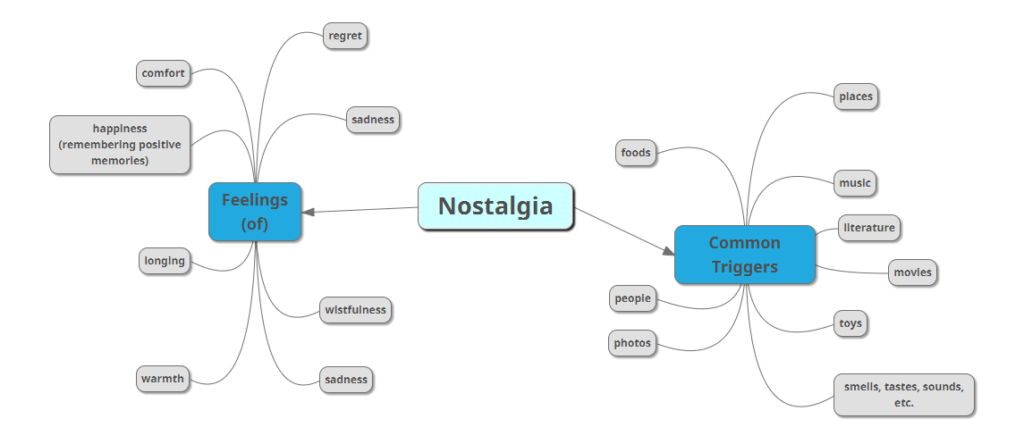(nɒstældʒə) noun
a sentimental longing or wistful affection for a period in the past.
About Nostalgia
The word nostalgia is a learned formation of a Greek compound, consisting of νόστος (nóstos), meaning “homecoming”, a Homeric word, and ἄλγος (álgos), meaning “sorrow” or “despair”, and it was coined by a 17th-century medical student to describe the anxieties shown by Swiss mercenaries fighting away from home. Described as a medical condition- a form of melancholy- in the Early Modern period, it became an important trope in Romanticism.
Most people would describe nostalgia as something that is comforting and familiar, however it can also be a deceiving illusion. I think this is because nostalgia and nostalgic feelings are based on memories rather than facts, and humans brains seem to erase past feeling of sadness and other negative emotions, therefore things that appear nostalgic may not be completely positive.
Nostalgia is mainly seen as a positive, nostalgic feelings being simply linked with pleasant memories of the past. There are many things that can trigger nostalgia, like music, movies, places, objects and people. I think nostalgia is typically quite a materialistic feeling, since it is typically triggered by solid things, however it also has spiritual aspects as it brings back positive feelings or a longing for the past. Nostalgia also links in with the idea of seeing the past as more positive than the future, so it could be argued to have negative effects since it can terminate the want to change and can even cause ideas of declinism.
Moodboard

Mindmap

